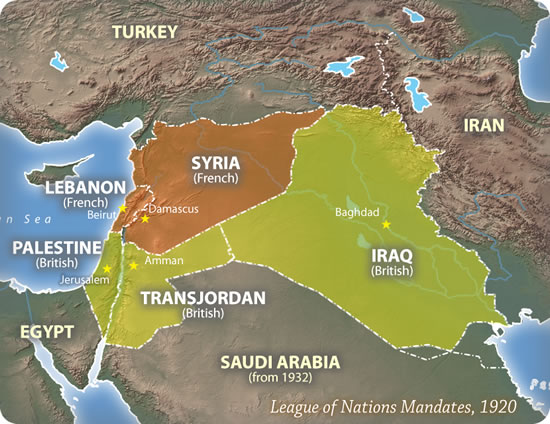28. The Crisis of the Imperial Order, 1900-1929
The War of the World – episode 1
This episode covers 1900 to the Russian Civil War. Niall Ferguson blames race and nationalism for the problems of the early C20th. He has a book of the same name of the series. In it, Ferguson develops an argument why the 20th century was so violent.
Origins of the Crisis in Europe and the Middle East
If you want to know more about the Middle East, the movie ‘Lawrence of Arabia’, may be useful to watch. Artistic licence is used obviously but one develops an understanding of how the British government acted at the time of war. Captain Lawrence was an actual figure, an intelligence officer in the British Army. He took part in the war against the Turks, although the story is more famous for the British betrayal of the Arabs.
The IMDB entry for Lawrence of Arabia
The “Great War” 1914-1918
Comprehensive website of the Great War
Another comprehensive website on the Great War
A very detailed website on the Great War
What were the causes of the Great War?
Causes from schoolhistory.org.
Various resources from schoolhistory.co.uk
Causes from Historyonthenet.com
A BBC page on the causes from the excellent Gary Sheffield.
The two clips above are from History is Happening. This is from a series which is made for schools. How different is it to the clip below?
Summaries of the causes from History Home.Very detailed page about the causes from FirstWorldWar.com.
The Franco-Prussian War was a long-term cause of the Great War. The clip below explains the war.
Those students wishing to achieve the highest grades in the causation essay should consider the following questions;
– Why did war occur in 1914? Who had the most to gain by going to war in this year?
– What would happen if there was not a war in 1914?
– Could war have been averted in 1914 and consequent years? Was there one particular moment that, if changed, war could not have occurred?
– If one country or one one cause is to blame, is the opinion today different from then?
– If Archduke Franz Ferdinand had not been assassinated, would there have been a war?
The questions above only represent a few ideas for your essay. Many questions can be asked and those students who wish to achieve the highest scores need to continually ask them in order to do so. A high level judgment is required at all times and this is only achievable by reading a variety of sources.
The Great War, from my previous history blog
Russia, from my previous history blog
…and for a different perspective on the causes of the First World War.
Essential Questions
These are questions for grade 9 although APWH students may find them useful to answer.
1. Why did the Great War begin in 1914?
2. Why did the war become a world war?
3. Was one country more to blame than others for the conflict?
4. Why was the more generally fought in Europe?
5. Why did the war last four years?
6. What were the key consequences of the Great War?
The assassination of Archduke Franz Ferdinand
Crash Course World History – World War One
Crash Course World History – World War One
Failure of the Schlieffen Plan
From the History Learning Site
Khan Academy
This website has 6 short lectures on the causes of the First World War.
German and Italian Empires in 1914.
Assassination of Franz Ferdinand
Peace and Dislocation in Europe, 1919-29
The Treaty of Versailles from the BBC.
China and Japan: Contrasting Destinies
The New Middle East
The following two treaties were signed to solve the problems of the fallen Ottoman Empire and the new Turkey.
The Treaty of Sevres, from a history website
A summary of the Treaty of Lausanne
The Treaty of Sevres also demonstrates how France and Great Britain divided the Middle East.
Society, Culture and Technology in the Industrial World

